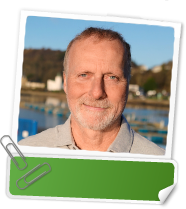Can a long-term anxiety sufferer like me really be helped?
I've suffered from anxiety and depression most of my life. Currently having CBT and practising mindfulness. I have spent money on books and the Linden method, had years of counselling, and still I struggle. I have abandonment issues from being adopted, learned helplessness, and the anxiety seems to be getting worse as I get older.
I don't have the money to keep buying into things that don't work. Am in dire need of hope. Can a long-term sufferer be free from excessive anxiety?
This question was submitted by 'Claire'

Mark says...
Hello Claire and thank you for writing in.
The first thing to consider is that some or many of the methods you have tried so far may have helped you to some extent, but the habit of learned helplessness may be preventing you using what you've learned or even recognizing that you have learned. Learned helplessness makes us passive. So it's vital that you actively use everything you've learned, not just assume it has to work on you as a passive recipient. (Although that article on learned helplessness I linked to is aimed at therapists, I'm sure you'll find its content useful.)
Another thing to consider is that some counselling may mainly focus on causes, looking for reasons as to why things are as they are, but not so much at how things can be different in the future. It's worth considering whether some of the counselling you've had was of that ilk. If you had years of that kind of therapy, then it may have encouraged you to be even more passive, not less, as looking just to an unchangeable past without seeking to develop current and future resources doesn't tend to make people more resilient. Certainly, the relationship with the therapist can, for a time, meet the important need for intimacy and human connection, although this need really should eventually be developed away from the therapy.
Mindfulness, hypnosis, relaxation techniques, and other brain and body training methods are important, but overcoming anxiety and living more confidently and happily are steps and by-products of meeting your human needs. Anxiety and its concomitant loss of self-confidence can block the completion of your primal human needs and it's when these needs go unmet that life can hurt.
Overcoming anxiety - or at least letting it know who's boss most of the time - is, in a sense, not an end in itself, but a requirement of enabling you to begin to actively find ways to meet your life's needs, a by-product of which will be increased happiness and enjoyment of life. So often, people seek to 'be happy' or 'overcome fear', but the real aim perhaps should be to find ways to live in such a way that all or many of the needs below are met:
- Feel safe and secure day to day
- Give and receive attention
- Have a sense of some control and influence over events in life
- Feel stretched and stimulated by life to avoid boredom
- Have fun sometimes and feel life is enjoyable
- Feel intimate with at least one other human being
- Feel connected to and part of a wider community
- Be able to have privacy and time to privately reflect
- Have a sense of status, a recognizable and appreciated role in life
- Have a sense of competence and achievement
- A sense of meaning about life and what we do.
When these needs are adequately met in a balanced way, life feels meaningful.
Moderating anxiety will help you better meet these needs, but in turn meeting these needs more will naturally keep your anxiety lower generally in life. Anxiety, anger, and, in fact, many negative emotions are really signals that life needs are not being met, just as the pains of hunger and thirst are signals that physical needs are not being met. You may have already read 'Fear of Abandonment' and '5 Tips for Generalized Anxiety Disorder', but I urge you to re-read them with a view to actively putting the strategies to good use.
Your brain has 100 billion cells, each cell has the potential to make trillions of connections with other cells as you learn through life. As we age, our brains can grow stronger through continued learning. You have learned all kinds of things perhaps you don't know you have learned and you can master yourself in this way, rise above your past, and live a happier and calmer life.
All best wishes,
Mark


